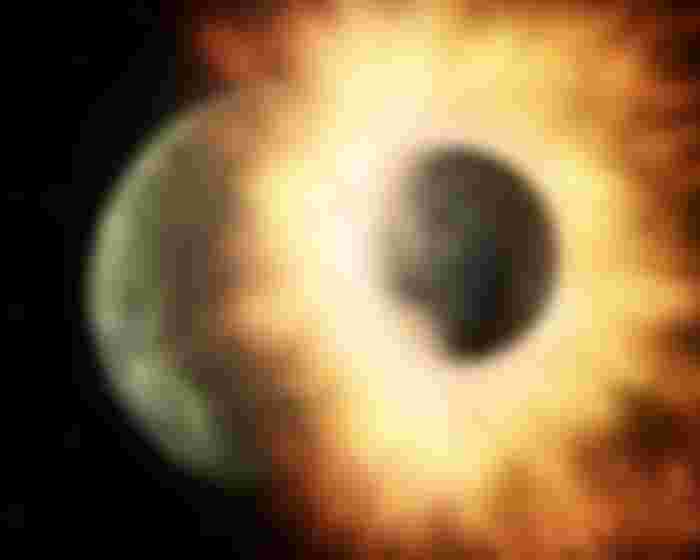Our civilization has been around for tens of thousands of years. But what will Earth be like in another 10,000? Most people think about this question and imagine the worst-case scenarios: nuclear war, global warming, or a meteorite collision. But there's also room for optimism. The future could include things like nanotechnology, human enhancement and space colonization. And, more importantly, we might be able to avoid total disaster. In this article, let take a look at six scenarios of what could happen to Earth in another 10,000 years. By the end of this, you'll have an idea of which scenarios are the most likely and which ones you should be worried about most. So, let's get started!

Scenario 1: An Asteroid Hits Earth
An asteroid hitting Earth is the disaster that everyone imagines when they think about humanity's end. It would be a pretty spectacular way to go out, but it's also one of the most unlikely scenarios on this list. Only a few small asteroids like 2015 BN509 and 2014 JO25 can come closer than Mars. An impact from either of those giants would start fires and earthquakes around the world, killing millions or maybe even billions of people instantly.
A collision with an object bigger than 30 kilometers (18.6 miles) across could destroy all life on Earth if it hit in the right place, like under the oceans or at the Arctic Circle. The good news is that astronomers know more or less where these giant space rocks are at any given time, so it's unlikely that Earth will be hit without warning. And there are other good news: NASA is planning to launch a spacecraft to either deflect or destroy any asteroids that could impact Earth in 2022.
The chances of this happening within the next 100 years are about 1%.
Scenario 2: The Sun Dies Out

What's the worst thing that could happen to us? Death. Not just death like you and I might meet sometime after 10,000 years. But the death of every life form on Earth by solar energy deprivation. Our sun gives off an enormous amount of hydrogen every second through fusion at its core. This fusion produces radiation (including visible light) that bounces around space until it hits something like our atmosphere or a planet.
Some scientists have predicted that the sun's fusion will start to slow down in the next few billion years. When the sun runs out of hydrogen, it will start to fuse helium and then carbon. This will cause the sun to grow bigger and brighter, eventually engulfing Earth. The last few minutes of our planet's life would be pretty hot, as the surface temperature would approach 5000K (9,032 F).
The chances of this happening within the next 10,000 years are about 1%.
Scenario 3: A Comet Hits Earth

A comet is a small celestial body that, like an asteroid, is composed of ice and dust. But comets are different from asteroids because they have a "dirty" nucleus. When a comet gets too close to the sun, the sun's heat vaporizes the ice on the nucleus. This gas and dust forms a tail that points away from the sun.
Comets can also be dangerous to Earth. In 1910, a comet called Lexell smashed into Earth, causing an explosion that destroyed an area of forest in Siberia. And in 2013, a comet called Pan-STARRS was only discovered three weeks before it passed within 1 million kilometers (620,000 miles) of Earth.
A comet hitting Earth is less likely than an asteroid impact, but it's still possible. The chances of this happening within the 10,000 years are about 5%.
Scenario 4: Global Warming

Global warming is the gradual increase in Earth's average surface temperature due to increased amounts of carbon dioxide in the atmosphere. The greenhouse effect is when greenhouse gases absorb infrared radiation and trap it near our planet's surface, preventing the heat from escaping into space. As these gases accumulate in our atmosphere, less heat can escape through it.
The most likely result is that global warming will cause an increase in sea levels and change weather patterns across the world by increasing temperatures on land and at sea level. This will cause ecosystems to collapse, leading to mass extinctions. Some models predict weather conditions like never before seen by humans or any other living creature on land or water! More than 30% of all species could go extinct if no actions are taken to stop global warming, and the process could take thousands or even millions of years to complete.
The chances of this happening within 10,000 years are about 20%.
Scenario 5: The Earth Collides With Another Planet

This one is a little far-fetched, but it's not completely impossible. If another planet with a sizable amount of gravity were to pass by Earth at close range, the gravity from both planets could cause major disturbances. For example, if Venus passed by Earth and caused an enormous gravitational pull on our planet, it would create earthquakes and lift land masses around the world upwards. Winds generated from such a strong gravitational pull might reach speeds as high as 1 trillion miles per hour (1 quadrillion kilometers per hour). It would be catastrophic for all life on Earth.
The chances of this happening within 10,000 years are about 1%.
Scenario 6: A Gamma Ray Burst From Another Galaxy Hits Earth

Gamma ray bursts (GRBs) are the brightest electromagnetic events ever observed in the universe. They're usually caused by massive stars collapsing into black holes or neutron stars at superluminal speeds. When these objects collapse, they emit high-energy gamma rays that turn into shockwaves traveling at near light speed when they hit interstellar gases and dust particles. If one of these shockwaves were to hit our solar system, it would cause life on Earth to go extinct within minutes! The energy released from a GRB is equal to roughly 100 million supernovae! Scientists have only observed about 1,000 GRBs in our galaxy, so the chances of this happening within 10,000 years are about 1%.
So, what are the chances of any of these things actually happening?
The odds of any one of these things happening in the next 10,000 years are about 1%. But if more than one of them happened, the chances would be much higher. It's important to remember that these are just possibilities; we can't predict the future. But it's always good to be prepared for anything!l






It is so scary how the universe can explode one day. I read this article that the sun might explode then evaporating the oceans of the earth. It is still a mystery when and would it ever happen?